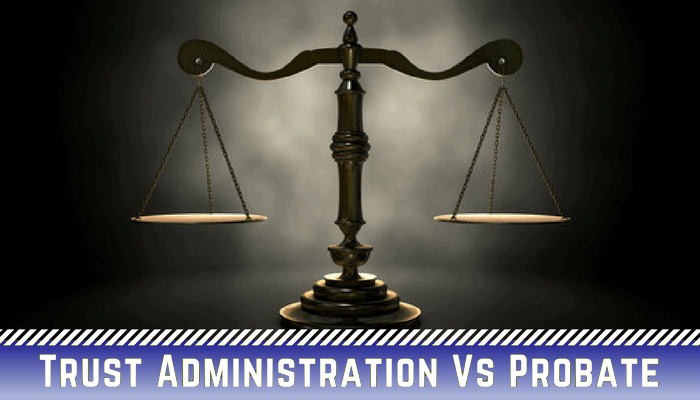Why create a Trust when a Probate can be used?
Most people elect to create revocable trusts during their lifetime in conjunction with their last will and testament, so they can avoid a probate of all or part of their estate at their death. But what is the difference between administering a trust at the grantor’s death or probating the assets?
Any asset titled in the name of an individual as trustee can be administered and distributed at the grantor’s death much more simply, quickly and at much less expense than if the same property had to be probated.
Why? Administering a trust and the assets held therein are not subject to court supervision, but the probate process is.
Trust Administration
One of the main goals of trust administration is the transfer of property from an individual (i.e., the grantor/decedent) to the beneficiary identified in his/her revocable trust. In addition to being less expensive and a quicker distribution, trust administration offers a much greater degree of privacy.
Probate
Probate, on the other hand, is a court-supervised process that encompasses:
- proving the validity of a will in front of a judge,
- gathering and distributing the decedent’s assets,
- paying estate expenses,
- filing and payment of taxes,
- and proving to the court that all of these things have been done properly.
Depending on the amount of the estate, there are different types of probate administrations with varying lengths of duration.
What Are Your Goals?
While one of the ultimate goals are the same for both trust administration and probate—ensuring that the decedent/grantor’s property is distributed to their intended beneficiaries—the process of achieving that goal vastly differs between administering a trust versus a probate. Anyone who has gone through the probate process or been a beneficiary to a probate will tell you that it wasn’t easy or quick. Certainly there is an up-front cost to preparing your estate plan (drafting trust, will, powers of attorney, re-titling deeds and recording deeds, and changing title to bank or brokerage accounts), but when you compare it to the many months involved in settling a probate, including the court costs and attorney fees, you are not only saving your beneficiaries money, but time as well.

